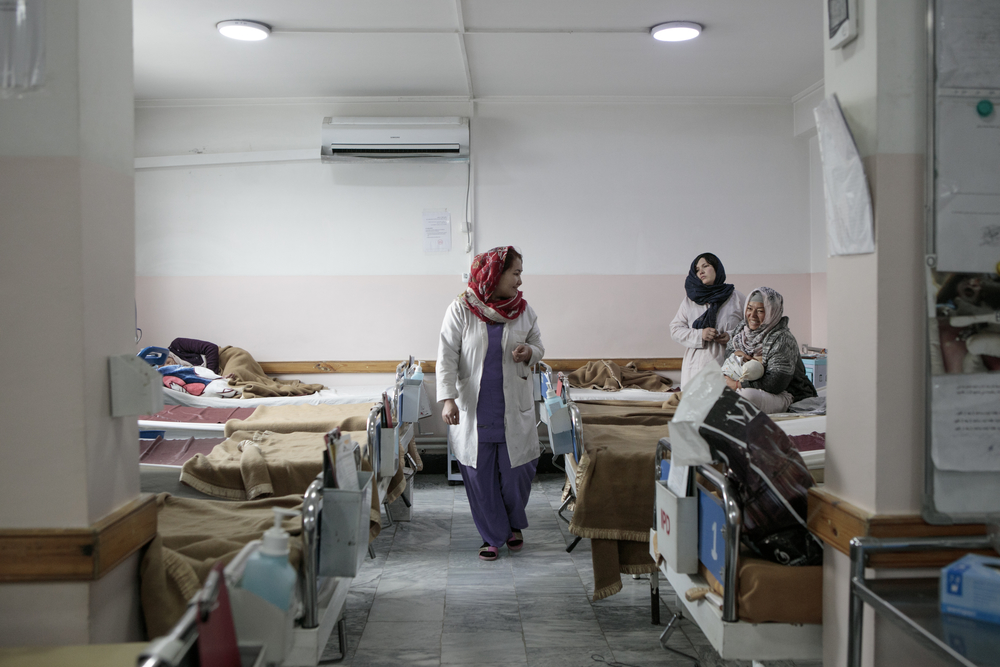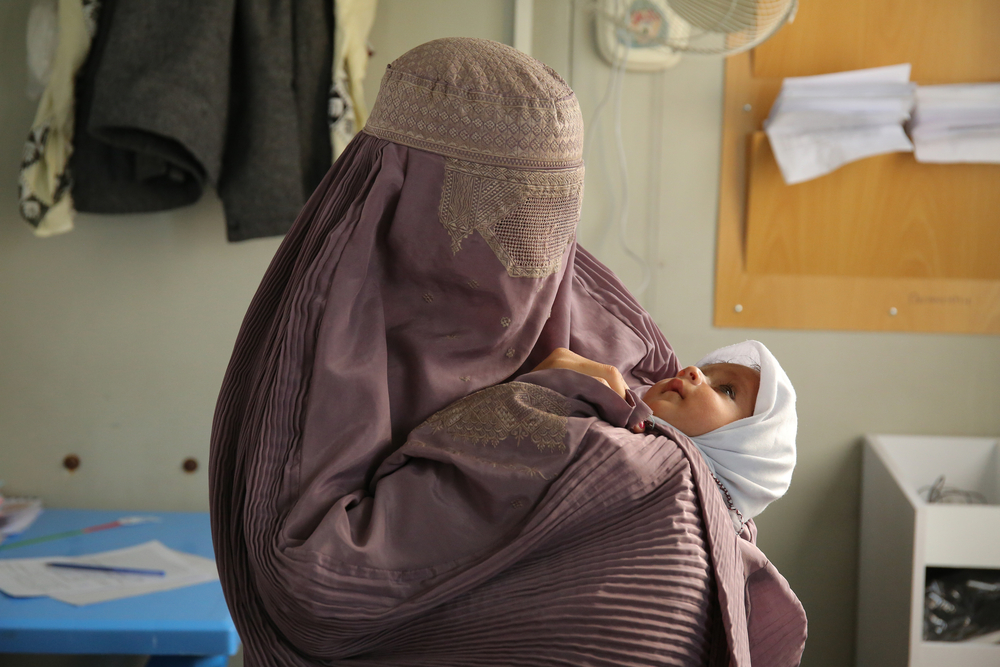Kandahar
In Kandahar, our teams have provided 12,750 consultations to patients for drug-sensitive and drug-resistant tuberculosis so far this year, with 1,522 in September alone. These numbers represent a considerable increase when compared to the same time period last year, when we provided a little over 7,000 consultations. This spike is largely caused by the improved security situation in the country and people’s ability to move more freely and seek healthcare. However, MSF’s financial support launched at the beginning of 2022 to provincial laboratories that offer TB testing likely plays a role as well.
Médecins Sans Frontières also runs nutrition activities in Kandahar with a focus on children who suffer from severe acute malnutrition (SAM) and are 6 to 59 months old. From January to September, 31,544 children were screened in the MSF Therapeutic Feeding Programme in Kandahar. Out of everyone screened until the end of September, 5,224 were enrolled in the Ambulatory Therapeutic Feeding Centre (ATFC) and 426 were admitted to the Inpatient Therapeutic Feeding Centre (ITFC). The rest did not require treatment of any kind.
During September, 488 patients were enrolled in the ATFC, and 110 children were admitted to the ITFC; this represents 25,8 per cent of all admitted patients to the ITFC this year. This increase correlates with more cases of acute watery diarrhoea in the region – something that has likely been brought about by increasing prices of basic food items. In short: people's nutritional status deteriorates because they don’t have enough money for food. This causes acute watery diarrhoea, which in turn worsens the malnutrition.
Lashkar Gah
The MSF-supported Boost Hospital in Lashkar Gah currently operates with a 340-bed capacity and staff continue to be extremely busy in all departments. In September, we triaged 23,591 patients in the Emergency Room – the highest number of any recorded month yet this year. This spike can be attributed mainly to the fact that many other regional facilities were forced to shut down in recent months due to lack of medical supplies and personnel caused by insufficient funding. Also, colder September weather means more people need primary healthcare for respiratory infections etc. Out of those triaged, 2,948 patients were admitted for inpatient care.
There were 348 severe and acutely malnourished children admitted to the ITFC in September, with high prices of food and increased prevalence of acute watery diarrhoea likely causing the high number.
Our teams also treated 308 measles patients in September, assisted 1,963 deliveries in the maternity department and provided 1,531 antenatal and 994 postnatal care consultations. The surgical department carried out over 651 major surgeries (operations that require general or spinal anaesthetic).


